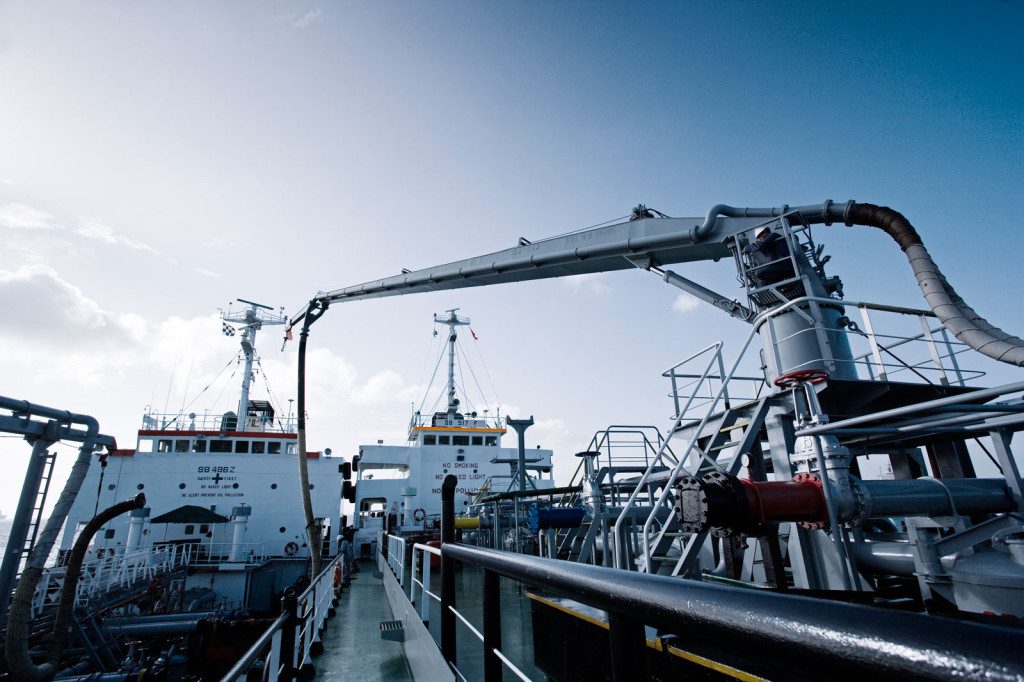 By Jane Xie
By Jane Xie
SINGAPORE, Nov 28 (Reuters) – The downfall of a leading marine fuel supplier that prompted sellers to tighten credit terms in Singapore is skewing the post-OW Bunker jostle for market share towards cash-rich trading companies and barge operators, traders said.
Marine fuel premiums over cargo prices in Singapore, the world’s busiest refuelling port, have stayed elevated after hitting their highest in more than two years in the wake of OW Bunker’s collapse as worried buyers tried to lock in prompt supplies.
Besides oil majors – such as BP, Shell and ExxonMobil – which have integrated supply systems including storage and fuel-delivery tankers, rivals with deep pockets or a fleet of barges are also expected to expand their market share.
Potential beneficiaries include World Fuel Services, Sentek Marine and Trading, Transocean Oil and Searights Maritime, according to trade sources, though it would be difficult to define the increase in volumes.
“World Fuels (seems to be) in good shape, so they could be filling OW’s gap,” said a Singapore-based marine fuel trader.
While World Fuels does not own barges in Singapore, it trades marine fuel in large lots lifted directly from storage tanks, also known as ex-wharf fuel, and delivers to ships through third-party barge operators, traders said.
World Fuels was one of the few companies that could pay cash upfront for its purchases, traders said.
World Fuels and Searights could not be immediately reached for comment. Sentek and Transocean acknowledged a rise in sales but declined to quantify the increase.
Sentek, Transocean and Searights, three of 63 licensed tanker operators in Singapore, operate more than 35 fuel delivery tankers, around 17 percent of the total licensed by the city-state’s Maritime Port Authority.
“OW Bunker (and Dynamic Oil) would have traded and delivered up to 300,000 tonnes of fuel each month, and that (shortfall) has been lifted. Your bigger players would have gained, but by how much, that is hard to tell,” said another Singapore-based fuel trader.
OW Bunker filed for bankruptcy in Denmark earlier this month after it revealed losses of at least $125 million at its Singapore trading unit, Dynamic Oil Trading.
Credit jitters are still keeping prices of marine fuel at elevated levels of about $10 a tonne above cargo prices, on an ex-wharf basis, up from an average of $4.70 a tonne in October.
Trading patterns are suggesting the market will hold firm until January. (Editing by Tom Hogue)
(c) 2014 Thomson Reuters, All Rights Reserved

 Join The Club
Join The Club











